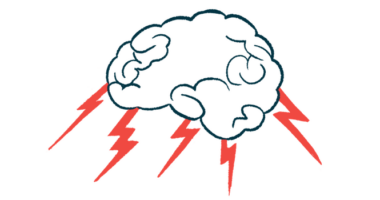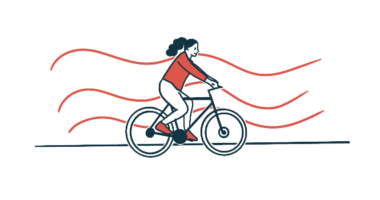Long-term tai chi for Parkinson’s patients may improve cognition
Chinese martial art also seen to ease daytime sleepiness at 6 months: Study

Long-term practice of the Chinese martial art tai chi for Parkinson’s disease was shown to ease nonmotor symptoms among patients in a yearlong trial in China.
Specifically, improved cognition was seen among people with the neurodegenerative disease after one year of the exercise program, according to study data. Conversely, at the six-month mark, taking part in the traditional Chinese martial art helped lessened daytime sleepiness in these patients as compared with those in the control group.
Practicing tai chi also was more effective at lessening nonmotor symptoms and improving sleep than was brisk walking, though these benefits did not reach statistical significance.
“Enhanced brain network function, reduced inflammatory and oxidative stress biomarkers, and the chance of decreasing the vulnerability of dopaminergic neurons to neurodegeneration might be the possible mechanisms of tai chi’s beneficial effects on non-motor symptoms,” the researchers wrote, further noting that “tai chi training is safe” for Parkinson’s patients.
The study, “Tai Chi improves non-motor symptoms of Parkinson’s disease: One-year randomized controlled study with the investigation of mechanisms,” was published in the journal Parkinsonism & Related Disorders.
Tai chi for Parkinson’s tested against brisk walking and no exercise
Parkinson’s disease is caused by the progressive dysfunction and death of dopaminergic neurons — nerve cells that are responsible for producing dopamine, a signaling molecule important for the control of voluntary movements.
Besides leading to its hallmark motor symptoms, like resting tremors, rigidity, slowness of movements, and gait or walking issues, Parkinson’s also can result in nonmotor symptoms among patients. Key among these are cognitive changes, sleeping problems, including daytime sleepiness, fatigue, and depression and anxiety.
Significant evidence has shown that regular physical exercise can help patients improve balance and mobility, ease their Parkinson’s motor symptoms, and reduce the effects of some of the disease’s nonmotor manifestations like depression or cognition problems.
A previously published study from the same research team, from institutes in Shanghai, indicated that the long-term practice of tai chi slowed the progression of motor and cognitive symptoms in Parkinson’s patients.
A traditional Chinese martial art, tai chi emphasizes slow, flowing movements and deep breathing as a form of regular exercise. The practice involves a series of choreographed movements that are performed in a slow and controlled manner.
Now, to further address the long-term impact of tai chi on Parkinson’s nonmotor symptoms and related mechanisms, researchers conducted a clinical trial (ChiCTR2000036306). It involved 95 patients with early-stage Parkinson’s, ages 50 to 80.
The participants were randomly assigned to one year of regular tai chi (32 patients) or brisk walking (31 patients) or no exercise (32 patients). Brisk walking was considered a moderate-intensity exercise; the patients in the no exercise group served as controls. There were no differences between the groups regarding age, gender, disease duration, or disease severity.
Patients in the tai chi or brisk walking groups exercised for one hour twice a week.
Overall, 66 patients — slightly more than two-thirds, or about 70% — completed the six-month and one-year follow-up.
Compared with those in the control group, the individuals who practiced tai chi showed a significant improvement in cognition, assessed using the Parkinson’s disease cognitive rating scale (PDCRS), after one year in the exercise program, but not at the six-month follow-up.
At six months, doing tai chi significantly lessened patients’ nonmotor symptoms, based on the nonmotor symptoms questionnaire (NMSQ), relative to those in the control group. Those in the martial arts program also experienced less daytime sleepiness, measured by the Epworth Sleepiness scale (ESS), compared with the control group. These effects were not observed at the one-year follow-up, the researchers noted.
However, there were no differences regarding other rating scales evaluating nonmotor symptoms, including anxiety, depression, fatigue, and patient-reported quality of life. While there were no statistical differences observed regarding cognition, tai chi had advantages in lessening nonmotor symptoms and improving sleep compared with brisk walking.
Traditional martial art found to ease nonmotor symptoms of disease
The researchers explored the mechanisms underlying the tai chi benefits for Parkinson’s. They found that exercise enhanced the function of the brain’s sensorimotor network, which is activated during motor tasks, compared with the control group. This increased activity was associated with a higher improvement in the PDCRS, suggesting that tai chi may improve patients’ executive function, which plays a role in and is important for performing daily life activities.
Moreover, tai chi-driven improvement in cognitive function was linked to increased levels of a protein called the brain-derived neurotrophic factor (BDNF). BDNF supports the growth and health of nerve cells, leading to changes in the levels of several metabolites — small molecules that result from cellular activity — and a reduction in inflammation.
Also, tai chi increased the levels of HIP2 mRNA, an intermediate molecule that carries genetic instructions to produce a protein. HIP2 is an enzyme involved in protein degradation, whose levels have found to be low in Parkinson’s patients and are thought to increase the vulnerability of dopaminergic neurons to degeneration.
Our study revealed that long-term tai chi training improved nonmotor symptoms in [Parkinson’s disease] patients, such as cognitive impairments and daytime sleepiness.
Overall, patients participating in the study experienced some adverse events, but these were least common among the tai chi group. The three most frequent events were fall-related injury, dizziness, and back pain. There were no serious adverse events reported. Adverse events were more common in the control group (40.6%), followed by the brisk walking group (16.1%) and the tai chi group (3.13%).
“Our study revealed that long-term tai chi training improved nonmotor symptoms in [Parkinson’s disease] patients, such as cognitive impairments and daytime sleepiness,” the researchers wrote.
“Together with the beneficial effects of tai chi on non-motor symptoms, tai chi is considered as an effective and safe exercise for early-stage [Parkinson’s] patients,” the team wrote.
Limitations of the study included the small number of patients and the fact the trial did not assess social interactions, particularly in the tai chi group, according to researchers, who noted that the martial art may benefit patients’ mood and decrease depression.
According to the team, further studies should address tai chi’s effects in larger groups of patients and the impact of social interactions on Parkinson’s nonmotor symptoms.








